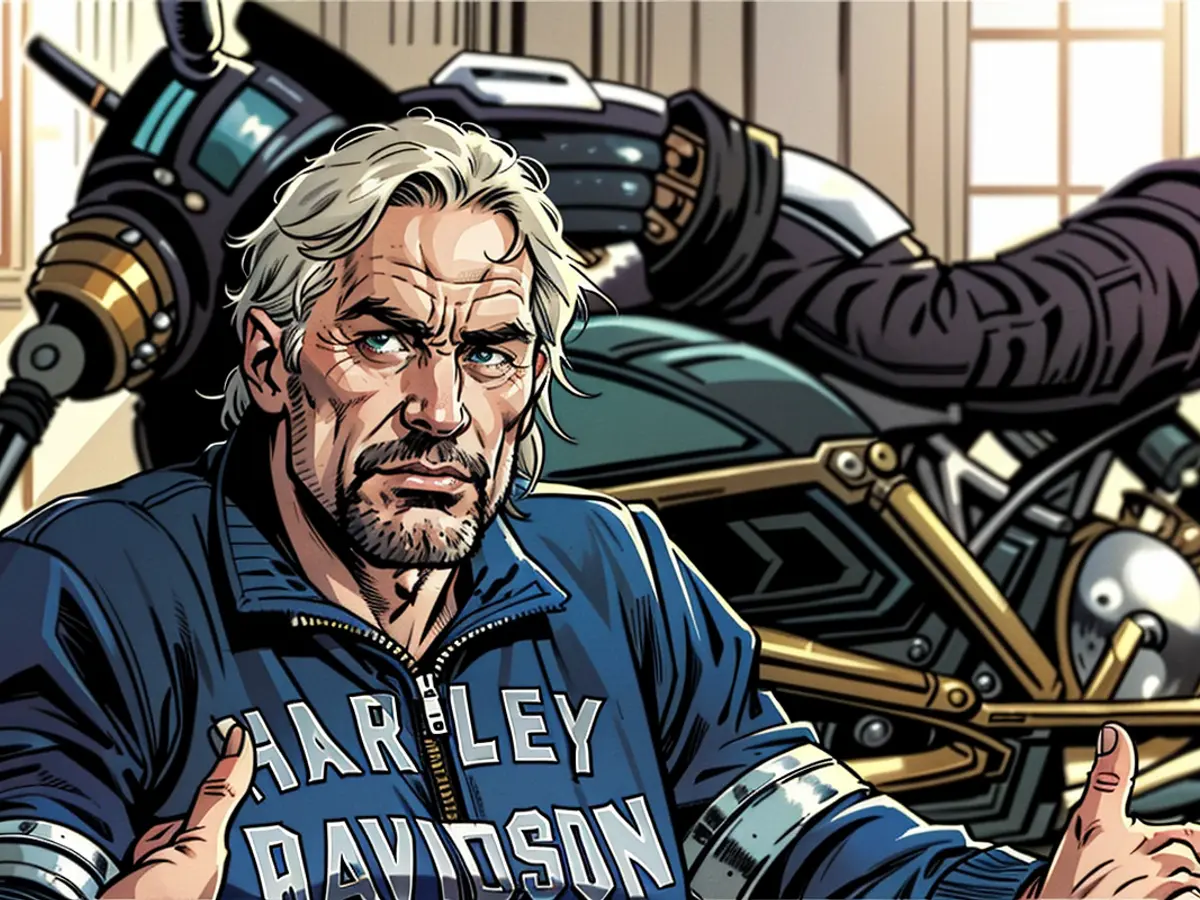Cyclists Advocating within Society Strive for Dominance Over Harley-Davidson Motorcycles
Purchasing a Harley-Davidson Motorcycle Translates into More Than Just a Vehicle for Customers. They Become Part of a Community and Embrace the American Way of Life. Some Consider a German's Attempt to Introduce Political Correctness and Environmental Protection into the Company as "Left-Wing Extremism" and Treachery.
For right-wing supporters, this is a triumph over a "left-wing plan" that aimed to "woke" and "green" the iconic US motorcycle brand and emblem of American culture. Following weeks of demonstrations and boycott initiatives, the traditional company has now renounced all its DEI policies and activities. DEI represents Diversity, Equity, and Inclusion, with numerous companies promoting equal opportunities for women or avoiding excluding sexual minorities.
Right-wing advocates have long opposed companies expressing opinions on social issues like racism and gender equality, whether in internal policies or advertising. The cultural battle led by conservative circles in the US against anything contradicting their perceptions of family, patriotism, or freedom has extended to the economy. For example, last year, Bud Light beer faced a boycott campaign after launching a promotional campaign with a transgender influencer.
In recent months, right-wing groups have explicitly targeted DEI guidelines adopted by various US companies. Activists have attended annual meetings, demanding a shift in management's social stance as shareholders. Due to the strong connection between the predominantly male, white, and highly conservative "bikers" and their Harleys, this cultural battle within the company was particularly heated.
We Hate You Guys
Harley-Davidson's CEO, the German Jochen Zeitz, was portrayed as a hate figure. In a viral video shared widely on X and TikTok, a bearded biker with a leather vest and obligatory red bandana criticizes the "shoe manager" and "European imitator" Zeitz, who "doesn't embody the American motorcycle community in any way." Zeitz previously led Puma in Germany and served as a top executive at French luxury goods conglomerate Kering. The irate Harley enthusiast lists Zeitz's supposed ambition to "turn the company completely green" and eventually phase out combustion engines as among Zeitz's most serious transgressions. "This guy hates us and our culture," the agitated biker claims.
Other hot-button issues in right-wing circles included Harley-Davidson supporting queer biker events or allegations of employees being compelled to attend diversity training. According to Monday's announcement, none of this will occur at Harley-Davidson anymore. Sponsorship will now focus exclusively on the "loyal motorcycle riding community, emergency services, soldiers, and veterans."
Harley-Davidson is not the first company to bow to right-wing pressure. Recently, agricultural machinery manufacturer John Deere, another American traditional brand with a predominantly conservative customer base, also withdrew its DEI policies. Conservative activist Robby Starbuck, who spearheaded the campaigns against both companies, celebrated Harley-Davidson's policy change as a "rewon victory for our movement." Further campaigns against other companies can be expected. "We won't stop," Starbuck writes on X.
In the midst of this controversy, many Harley-Davidson customers in the United States of America saw Jochen Zeitz's efforts to introduce DEI policies as a threat to their values and way of life. Subsequently, they fiercely opposed these changes and pushed for a return to the company's traditional values.
During this period, the United States of America saw a rise in right-wing activism against companies that seemingly deviated from traditional American values, with Harley-Davidson becoming one of the prominent examples.








